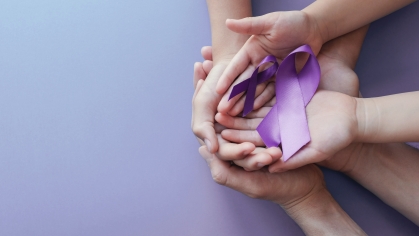Rutgers School of Social Work’s Office of Field Education recently launched a self-care toolkit for social work students and practitioners who are susceptible to compassion fatigue and burn out as they provide care to others. Finding proper and individualized ways to unwind after facing various stressors can recharge the mind, body, and spirit for personal and professional growth and fulfillment.
We recently had the opportunity to speak with Bernardo Hiraldo, Teaching Instructor and Associate Director of Field Education, about the importance of self-care for social workers.
Tell us a bit about the work you’re doing with self-care.
The work that I’ve focused on is being able to support our students to do the best work with the people they serve. Part of this work is keeping themselves well, and this is something that we as a School want to support our students in doing as they are progressing through the social work program.
What I’ve done for the self-care website is identify the tools and resources that can guide them toward a greater self-awareness about self-care. We want to encourage our students to be proactive about taking the time to be able to find that balance. We show them how they can recognize if they are burning out and what they can to do successfully manage their well-being.
The website on self-care has information on vicarious trauma, burnout, self-care tips, counseling services as well articles and sources of inspiration for students and field instructors alike.
What motivated you to do this kind of work?
As a social worker, I have a passion for working with individuals and families. I understand how rewarding it can be to help those in our communities that need it the most but also how challenging it can be to negotiate time between family, friends, work, and other life responsibilities. If you are not striking this balance, then it could have a negative impact on your life and those who are depending on you to be your best.
I want to be able to teach our students the importance of finding balance in their lives and maintain self-care throughout their careers. It’s been my goal to help students and those who supervise them in their professional development that this a key factor to their overall success.
Why should social workers practice self-care?
In the field of social work, we find ourselves helping others in many different settings. We are called the “agents of change” and for many of us entering this profession it has some special meaning. We all have our motivations and passions for going into social work, and I want to encourage students to continue on the path that pulled them into this work.
For many of us, social work is a lifelong journey, and if we want to remain just as passionate as we did when we first started, then practicing self-care is what is going to sustain us through the good times and also the very challenging times. We like to say to students in the social work program that it’s not only our personal responsibility to take care of ourselves but also as a professional it’s our ethical responsibility.
How has the pandemic impacted self-care?
The pandemic was, and still is, a major source of stress and anxiety for many of us at different levels. Individuals have lost family and friends to this virus. Our ability to enjoy our usual connections with others was disrupted by the pandemic. The virtual world is how many of us conducted our work, our school and communication with loved ones. It separated us in ways that we never imagined, and it made us long for the days before the pandemic.
Our usual coping skills were severely strained by what was happening in these unprecedented times. Given all these conditions, it was hard to take the time to focus on oneself. It was especially difficult if you had to also take care of parents, children, or members of your family that were struck by COVID-19. It was hard.
One of the ways we encouraged our students, field instructors, and other members of the Rutgers community was to reach out to each other. We asked them to try and pay attention to peers that seemed to be more isolated and not themselves. But mostly, I would a say that a little goes a long way. Find a way to smile, to say hello to a stranger, to check in with yourself and find some way or somehow to invest in your well-being.
If I learned anything from this pandemic, it is how our students, faculty, staff, and host agencies have come together to overcome these challenging times. For that, I’m grateful.
What are some of the ways you practice self-care?
For my self-care, I try to set the tone for what is going to be the rest of my day. I enjoy every morning having a cup of coffee with my wife. Spending this time with her is very meaningful to me. I have two great boys that are growing so fast and I’m trying to cherish them every step of the way. I do exercise to try to keep myself in shape and to be able to keep up with my boys. But mostly, I try to be thankful for each day and I appreciate the little or big things that come my way. This sustains me and keeps me present in all things that I do through my day.



